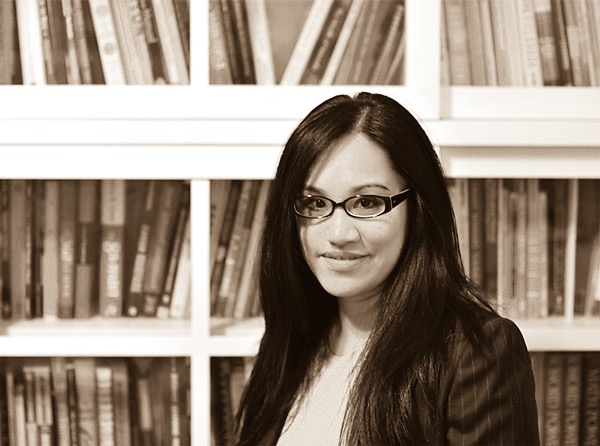Technology has always been a part of Dr. Lani Fraizer’s life. Her parents met in a computing class, and they shared their love for technology with their children.
„Computing was always there,“ Lani said. „Most people have a dining room with nice china, a formal dining table, and a hutch. We had half a dozen MS-DOS computers in our dining room!“
Both Lani and her sister were eager to learn more about computing and coding, teaching themselves BASIC in elementary school by reading a manual. Their father also sent them to an Apple computer summer boot camp when they were in sixth grade. But despite her love for computing, Lani did not originally pursue a computer science degree, opting instead to study psychology in college. Computing, however, remained a big part of her life.
„I took a lot of computer science classes for fun,“ she explained. „My undergraduate professors were part of my support system, especially Professor Emeritus and Fulbright Scholar George Parrott and Dr. Floyd Lecureux, Professor of Computer Science. With their support, I co-founded the Multimedia and Internet Association on campus — an interdisciplinary student computer club tying the School of Psychology, School of Computer Science, and School of Communications.“
The Confidence Challenge
After taking so many computer classes, Lani contemplated switching her major to computer science. But because she hadn’t taken all the required prerequisite classes, she could not enroll in the program, and would have to extend graduation to two more years. So, she stuck with psychology.
„One of the biggest challenges people face is having the confidence that allows them to do more than they can even imagine. I faced this myself when trying to switch to computer science,“ Lani explained. „I knew I was ready to go into computer science, but I was discouraged to do so by the department because of my interdisciplinary focus in human-computer interaction.“
Eventually, Lani’s love of interdisciplinary computing won out. Although she would still earn her bachelor’s degree in psychology, she also went on to earn a master’s in computer science at Carnegie Mellon. Since then, she’s worked on poverty eradication initiatives with Nobel Laureate Muhammad Yunus’ Center at the Asian Institute of Technology in Thailand. She’s also founded her own social business, providing economic opportunities for out of work, underemployed, or displaced women retirees via computing skills, and served as a senior consultant for Microsoft’s Public Sector for 12 years.
Most Rewarding Achievement
Just as computing was a large part of Lani’s upbringing, so was education. „My parents established education as a core value“ Lani explained. “My parents and their siblings had degrees, and my grandparents were teachers. But education was also a doorway for me to evolve personally.”
Lani saw education as a way to give back to her community, leading her to pursue her current position as Associate Professor of Social Innovation and Technology Leadership and Director of International Learning Experiences at Pepperdine University’s Graduate School of Education. She calls her involvement in education and the doctoral program the most rewarding achievement in her career, where their guiding charter is living for „purpose, service, and leadership.“
„I see people go through a lot of ups and downs, whether it be a death in the family or a promotion or the loss of a job,“ she said „But in the scope of a year, they overcome these things and graduate. They attain their lifelong goal of not merely getting a doctoral degree but finding their true north in service.“
She often tells both graduate and undergraduate students her own story to encourage them to follow their dreams, especially if they are nervous about changing majors or shifting their career path.
„Go ahead and do it,“ she tells them. „Give it a chance.“
A Community of Practice
Lani’s passion for giving back to her community also led her to get involved with the Grace Hopper Celebration (GHC). She first attended GHC when she joined Pepperdine, with the support of Chair Dr. Linda Polin. For small universities like Pepperdine, opportunities such as GHC become critical chances for students to connect with others in the larger professional community. Since then, she’s served in numerous leadership committee roles, and also fiscally co-sponsored one of the first Open Source Day programs. Today, she is currently serving as a Program Co-chair for GHC 17.
„I wish every country could have its own GHC,“ she stated. „We need to ask ourselves, ‚How can I create lifelong change using my expertise and tech skills?'“ She continued: „Events like GHC help instill a community of practice for us, allowing us to share experience, learn from others, and build confidence so that we may increasingly and successfully serve our communities and organizations.“
Lani hopes that GHC attendees will gain the confidence to follow their own dreams and not be afraid to take new paths throughout their careers. „Diversify,“ she urges them. „You can be everything you want to be.“












Schreibe einen Kommentar
Du musst angemeldet sein, um einen Kommentar abzugeben.